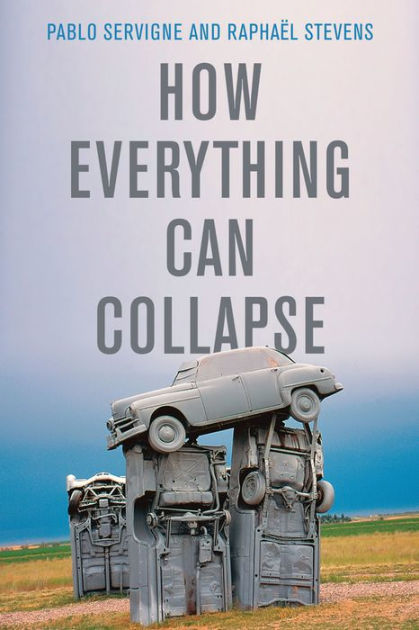 “Overindulging in this [message board] may be detrimental to your mental health. Anxiety and depression are common reactions when studying collapse,” warn the moderators of a Reddit message board bluntly titled “Collapse of Civilization.” Users of this board collect the news stories that the rest of us train ourselves to take in small doses: climate destruction and economic freefalls, food shortages and energy crises, and social breakdown and political corruption. The rare story about a stray comet headed toward Earth is about as hopeful as this community allows itself to be. There is no “rising to the occasion” or “hope for a sustainable future” for these users: only a thousand stories leading to the same damning conclusion of complete global collapse.
“Overindulging in this [message board] may be detrimental to your mental health. Anxiety and depression are common reactions when studying collapse,” warn the moderators of a Reddit message board bluntly titled “Collapse of Civilization.” Users of this board collect the news stories that the rest of us train ourselves to take in small doses: climate destruction and economic freefalls, food shortages and energy crises, and social breakdown and political corruption. The rare story about a stray comet headed toward Earth is about as hopeful as this community allows itself to be. There is no “rising to the occasion” or “hope for a sustainable future” for these users: only a thousand stories leading to the same damning conclusion of complete global collapse.
At first blush, the provocative, newly-translated book by French agronomist Pablo Servigne and eco-consultant Raphaël Stevens, How Everything Can Collapse: A Manual for Our Times (2020 [2015]), appears to share the same pessimism. Drawing on a wide swath of cross-disciplinary research, Servigne and Stevens map out their own case for civilizational collapse worldwide, centering primarily on interlocking ecological catastrophes, financial meltdowns, and energy shortages. By their reckoning, this collapse isn’t far off, and we don’t have enough time left to find a global off-ramp or enact incremental policy measures. The collapse is likely going to happen during our lifetimes. Oh, and it is unavoidable. “In fact, there are not even any ‘solutions’ to our predicament,” they write.
But what distinguishes Servigne and Stevens’s project from the doom spiral of online fatalism is how they conclude the previous sentence: there are no solutions, “just paths we can pursue to adapt to our new reality.” In short, while “collapse” may be inevitable, our reactions to it need not resemble a post-apocalyptic world of the Mad Max or Children of Men variety. Servigne and Stevens call for a sort of societal doomsday prepping, which would build and emphasize local resilience, community support networks, innovative art, and, above all, a climate of trust to rebuild a humane future from the wreckage of collapse.
Readers will likely bristle against the authors’ insistence that collapse is a foregone conclusion and may want to dismiss the book as no more than an exercise in morbid speculation or paranoid thinking. But the broader question that How Everything Can Collapse asks hits at the core of this year’s UConn Reads theme of “Environmental Justice and Human Rights.” How can we fortify our communities and repair our commitments to one another in order to imagine a just, humane future, even should the worst come to pass? For Servigne and Stevens, the end of civilization need not mean the end of humanity but might, instead, invite its renewal.
–Daniel Pfeiffer
Ph.D. candidate
English
 Who is Daniel Pfeiffer? Daniel Pfeiffer is a Ph.D. candidate in UConn’s English Department and a research assistant at the UConn Humanities Institute. He is writing his dissertation on the New York City art novel after the creative economic turn.
Who is Daniel Pfeiffer? Daniel Pfeiffer is a Ph.D. candidate in UConn’s English Department and a research assistant at the UConn Humanities Institute. He is writing his dissertation on the New York City art novel after the creative economic turn.

